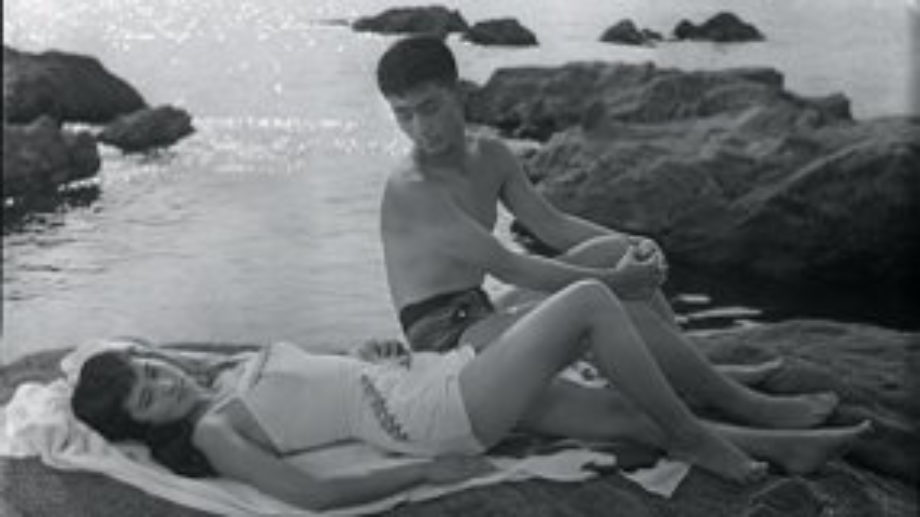
Can't believe it's already day seven of the festival? Don’t worry, there’s still a lot to look forward to! Let the critics be your guide…
Elina Mishuris of The L Magazine celebrates the Nikkatsu Centennial with a look at Crazed Fruit (pictured above):
“Short and beautifully simple as it is, Crazed Fruit seeded the ground for more brutal New Wave offerings (see Nagisa Oshima’s Cruel Story of Youth) and harsh perspectives—see Shintaro Ishara, currently the super-conservative governor of Tokyo.”
Ian Erickson-Kery, also of The L Magazine, sings the praises of Andrew Bird: Fever Year:
“A highlight of the film is a clip of a live performance of “Anonanimal,” accompanied by audio clips from an interview in which he discusses his sudden urge to switch from violin to guitar for a few measures, forcing a brief but good-humored pause in the song. The juxtaposition of song and reflection gives the viewer a glimpse of his spontaneous creative process.”
Slant Magazine’s Kenji Fujishima gives us his view from the avant-garde with his review of Two Years at Sea:
“Not that anything else should necessarily matter, though, when the particulars of Jake's lifestyle are rendered as mesmerically as they are here—especially in deliberately grainy black-and-white 16mm cinematography, shot by Rivers himself, that gives a dreamy visual texture to the landscapes Jake wanders around in. Its visual beauties aren't the only things going for it though.”
Steve Dollar of the Wall Street Journal shares his thoughts on Once Upon a Time in Anatolia and more:
“Already a critics' favorite—it shared the grand prize at Cannes—this 2½-hour drama by Turkish director Nuri Bilge Ceylan begins in much the same nocturnal murk as his 2008 film “Three Monkeys.” Like that film, there's a dead body to propel the story. But instead of becoming the catalyst for a domestic meltdown, the corpse becomes the focus of an arduous investigation as a small band of policemen spend a long, long night wandering across the Anatolian steppes with a murderer in tow, ever more frustrated at their inability to find the body. The film's procedural form is as much a tool to uncover facets of character as it is the template for a mystery, one framed in Mr. Ceylan's expressive touch with extreme low lighting.”
Lucas Kavner of The Huffington Post discusses Paradise Lost 3: Purgatory:
“‘The opportunity to go back to your own work,’ Berlinger said at a press conference, ‘was hugely fascinating. How often do you get a chance to revisit your own material using your own archival footage?’”
Stay tuned throughout the NYFF for more of what the critics are saying about festival films.



